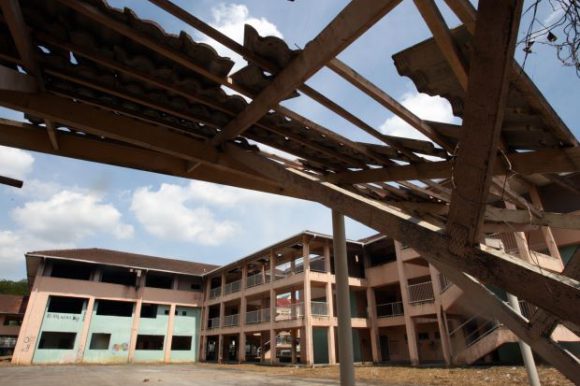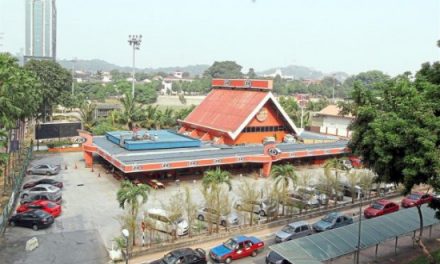Mandatory supervision to resolve abandoned housing projects
The Ministry of Housing and Local Government will make standing supervision mandatory, to address the issue of abandoned housing projects under the 1Malaysia People’s Housing Scheme (PR1MA). Its deputy minister Datuk Raja Kamarul Bahrin Shah Raja Ahmad Shah said most of the PRIMA housing projects were abandoned believed to be due to poor project supervision. “In the construction of housing projects, it is the duty of the consultants (engineers and architects) to monitor the progress of the projects, but when the housing projects are given directly to the contractors, less importance is given to standing supervision. This matter will be discussed at the ministry level to ensure that whatever the circumstances, supervision is carried out so that projects are completed successfully to overcome cases of abandoned projects,” he said. (Malay Mail Online)
Malaysian parliament throws out Anti-Fake News bill
Malaysia’s parliament on Thursday repealed a law against ‘fake news’ introduced this year by the administration of former prime minister Datuk Seri Najib Razak. The Anti-Fake News 2018 bill set out fines of up to RM500,000 and jail of up to six years. Critics denounced the law as repressive and accused Najib of trying to curb free speech ahead of a May general election. Parliament debated a motion to repeal the law for about three hours before passing it by a simple voice vote. Malaysia was among the first few countries to introduce an anti-fake news law although other countries in the region, including Singapore and the Philippines, have said they are considering how to tackle “fake news”. (NST Online)
Lack of incentives for green building projects
The Real Estate and Housing Developers’ Association Malaysia (Rehda) highlighted that there is a lack of incentives to encourage developers to embark on green building development, in particular financial incentives, which do not mitigate the high upfront cost of green buildings. Developers face financial risks, including 15%-20% higher capital upfront or initial costs, for green buildings. Extra costs involved include new technology and innovative technology methods or techniques, green rating assessment fees, design fees, professional fees, procurement of new technology or materials as well as longer planning period. There is also problem of undersupply of green building technology and materials, which have to be imported, thus making rental premiums higher for green buildings. There is also a lack of enforcement, including the lack of legislative framework for green technology and lack of building codes and regulations. (The Sun Daily)
Build expensive houses at your own risk, Penang warns developers
A Penang government official today told developers to build expensive housing units “at their own peril”, following reports by a government property monitor showing a drop in demand for expensive units this year. Based on numbers from Napic, about 60% of unsold units in 1Q this year in Penang were priced at RM500,000 and above, said State Housing Committee chairman Jagdeep Singh Deo. “If you want to build high-end, then you will have to wait. You build high-end units at your own peril,” he said. Jagdeep said Napic’s definition of unsold units was “too short” as it defined an unsold unit as one that had not been sold nine months after completion. On a different note, Jagdeep said he would urge the housing and local government ministry to follow in Penang’s footsteps in lowering the ceiling price of affordable housing from RM500,000 to RM300,000. (Free Malaysia Today)
New Zealand passes law to crack down on foreign home buyers
New Zealand’s government will ban foreigners from buying residential property, making good on its promise to crack down on offshore speculators who it says are partly to blame for spiralling house prices. The Overseas Investment Amendment Bill, which places limitations on foreign purchasers, was passed on Wednesday. The restrictions will take effect within two months of the law receiving formal assent from the Governor General. While data suggest foreign buyers play only a small role in New Zealand’s housing market, wealthy Americans have made headlines for snapping up some of the most pristine property in the country. The new law classifies residential land as “sensitive,” meaning non-residents or non-citizens can’t purchase existing dwellings without the consent of the Overseas Investment Office. (Free Malaysia Today)





